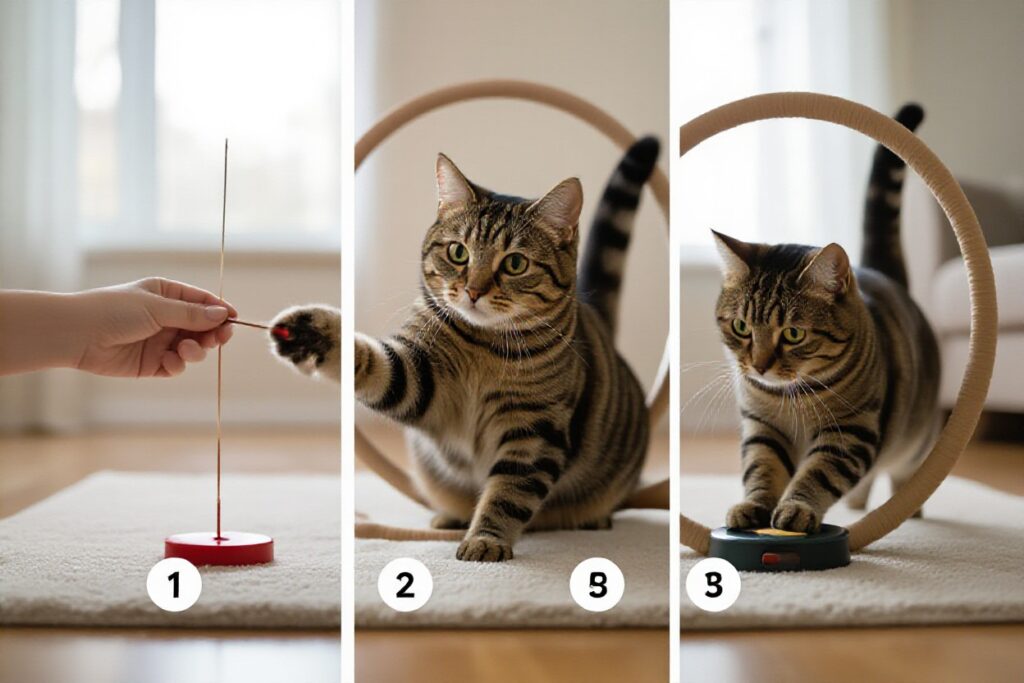Most bird owners underestimate the importance of proper hydration for their feathered friends. Dehydration can lead to serious health issues, so it’s crucial to ensure your bird has access to fresh, clean water at all times. In this guide, you’ll discover effective strategies and practical tips to help you keep your bird well-hydrated, whether through the right type of water containers or techniques to encourage drinking. Your avian companion deserves the best care, and understanding their hydration needs is a vital part of maintaining their overall well-being.

Understanding the Importance of Hydration
For every pet owner, ensuring that your bird receives proper hydration is a crucial aspect of their overall health and well-being. Birds, like all living creatures, rely on water to maintain crucial bodily functions. Water is involved in digestion, circulation, and the regulation of body temperature. Unlike mammals, birds don’t have a constant thirst response, which means it’s up to you to monitor their water intake and ensure they stay adequately hydrated at all times.
How Hydration Affects Bird Health
Hydration is vital for optimal bird health. When your bird is well-hydrated, their organs function efficiently, and they have a vibrant plumage. Conversely, without sufficient water, your bird may experience a range of health issues, including kidney dysfunction and reduced immune strength. Additionally, dehydration can lead to serious complications like hyperthermia, especially in warmer climates. Therefore, keeping your feathered friend hydrated should be a top priority for every responsible pet owner.
Common Signs of Dehydration
There’s a variety of signs you can look for that may indicate your bird is dehydrated. Pay close attention to changes in their behavior or physical appearance. Signs such as loss of appetite, lethargy, and sunken eyes are all red flags. You might also notice that your bird’s droppings appear dry or less frequent, as dehydration affects their digestive system, which can lead to serious health complications if not addressed promptly.
With knowledge of these warning signs, you can quickly take action if you suspect your bird is experiencing dehydration. Make it a routine to check their water supply daily and watch for any behavioral changes that might indicate a problem. It’s vital to be proactive because dehydration can escalate quickly, leading to more severe health issues that can be difficult to treat. Your vigilance is key to maintaining your bird’s happiness and health.

Factors Influencing Water Intake
Assuming you want to ensure that your bird remains properly hydrated, it’s crucial to understand the various factors that can significantly influence their water intake. These factors can include:
- Environmental Conditions
- Type of Bird and Its Needs
- Diet and Its Impact on Hydration
This understanding will help you make informed decisions about how to best provide water for your feathered friend.
Environmental Conditions
While it may seem like a simple task to provide water for your bird, the environmental conditions play a crucial role in determining how much water your feathered companion will need. Factors such as temperature, humidity, and even the season can greatly affect their hydration needs. For instance, during the hotter months, you may notice your bird drinking more frequently to compensate for the increased heat and loss of moisture through evaporation and perspiration. Similarly, if the air is too dry, your bird may also require more water to maintain hydration levels.
Moreover, if your bird resides in a particularly drafty area or is exposed to air-conditioning, these conditions can lead to increased water loss. You should take these factors into account when monitoring your bird’s water consumption. Changes in their drinking habits might signal a need for you to provide water more frequently or adjust their environment.
Type of Bird and Its Needs
Assuming you are aware of different bird species, it is important to recognize that each type of bird comes with its own unique hydration needs. Small parrots, for example, may require less water compared to large birds like macaws or cockatoos. Both their size and activity level contribute significantly to how much water they will consume daily. Additionally, some species may be prone to dehydration or require more water due to specific health conditions.
Another important aspect to consider is that specific breeds may have a natural inclination toward hydration methods, affecting how you present water to them. For example, while some birds drink from bowls, others might prefer to drink from a sipper bottle or relish the occasional misting. Understanding your bird’s natural behaviors and preferences can highlight the importance of adapting your hydration strategy to meet their individual needs.
Diet and Its Impact on Hydration
For ensuring proper hydration, the diet you provide to your bird plays an important role in their overall water intake. Birds that consume a primarily dry seed-based diet may need to drink significantly more water compared to those who feast on fresh fruits and vegetables, which have a higher water content. By offering a diverse diet that includes fresh produce, you can help reduce the amount of water your bird needs to consume independently.
Hydration can also be influenced by the quantity and quality of the food provided to your bird. Certain foods like lettuce, cucumbers, and watermelon can contribute to their hydration levels, while high-fat seeds and pellets might require your bird to drink additional water. You need to be aware of what your bird is eating, as it can greatly affect their water intake.
All things considered, keeping your bird hydrated involves understanding various influencing factors, including their specific requirements based on environmental conditions, type, and diet. This holistic approach will help you in creating an optimal hydration plan for your beloved pet, ensuring they remain happy and healthy.

Effective Water Tips for Bird Owners
Despite the natural ability of birds to find water in their environment, as a bird owner, it is important to ensure that your feathered friend has access to fresh and clean water regularly. Keeping your bird hydrated can prevent dehydration, which can lead to serious health issues. Here are some effective tips you can incorporate into your routine:
- Always provide fresh water daily.
- Ensure the water container is appropriate for your bird’s species and size.
- Keep the water clean, changing it regularly to remove any debris or contaminants.
- Consider incorporating hydration into their diet with water-rich foods.
- Monitor your bird’s drinking habits; seek veterinary advice if they seem uninterested in drinking.
Providing Fresh and Clean Water
For optimal hydration, you should provide your bird with fresh and clean water daily. This is crucial because birds are particularly sensitive to water contamination, which can lead to illnesses. Make it a habit to change the water every day, or even twice a day if possible, to prevent bacteria growth and ensure that your bird is always drinking from a clean source.
Additionally, make a habit of washing the water container thoroughly, ideally with soap and warm water, at least once a week. Rinse it well to remove any soap residue, as birds can be sensitive to chemicals. If you notice any signs of disturbance or algae in the water, be sure to clean the container promptly to keep your bird safe and healthy.
Choosing the Right Water Container
If you want your bird to drink more easily, choosing the right water container is important. Look for a container that is suitable for your bird’s size, as some species may have difficulty accessing water in certain types of bowls or containers. Shallow, wide containers are typically more accessible for smaller birds, while larger birds may require deeper bowls.
It’s also important that the container is stable and cannot be easily tipped over. Some birds, particularly larger species, may tend to play with their water containers, leading to spills and a messy environment. Avoid containers made from materials that can leach harmful chemicals and opt for glass or stainless steel, as these are easier to clean and maintain.
Plus, incorporating a water bottle can also be beneficial for some birds, as it helps minimize spillage and contamination, while offering a constant supply of fresh water. Make sure to test if your bird can use the bottle properly to ensure it’s an effective hydration solution.
Incorporating Hydration into Their Diet
For a well-rounded approach to hydration, consider incorporating water-rich foods into your bird’s diet. Fruits and vegetables, such as cucumbers, melons, and leafy greens, are not only healthy options but also contribute significantly to your bird’s daily water intake. This can be particularly helpful during the hotter months or if you notice that your bird is drinking less than usual.
Moreover, providing small bowls of water-rich foods can also encourage your bird to hydrate sufficiently. Mix these with their regular diet to make it easier for your bird to consume a balanced meal while staying hydrated.
This combination of fresh water and hydrating foods is critical for promoting your bird’s overall well-being. Regularly mix up the options to keep their diet exciting and encourage them to drink and eat adequately.
After incorporating these effective tips, you can ensure that your bird stays healthy and hydrated throughout its life.
Tricks to Encourage Drinking
Many pet bird owners struggle to ensure their feathered friends stay adequately hydrated. It’s crucial to be proactive in this area, as dehydration can lead to serious health issues for your bird. Fortunately, there are several tricks you can implement to encourage your bird to drink more water on a daily basis.
Using Flavor Enhancers
Now, one of the easiest methods to enhance your bird’s water intake is by using flavor enhancers. Adding a few drops of fruit juice or a splash of organic, low-sodium broth to their water can entice your bird to drink more. Just be mindful to keep the amounts small and occasional, as too much sugar or sodium can negatively affect their health.
Moreover, you can experiment with different flavors to find what your bird enjoys most. For instance, many birds love the taste of fresh lemon or orange, while some may prefer a hint of berry. Just remember to change up the water daily to ensure it stays fresh and inviting for your bird.
Creating a Fun Watering Environment
Assuming you want to make drinking water more appealing to your bird, creating a fun and engaging watering environment can be highly effective. Consider placing the water dish in a location where your bird feels safe and secure, perhaps near their favorite perch or toys. Additionally, using a shallow water bowl can encourage your bird to bathe as well as drink, since many birds enjoy splashing in water.
Another option is to try out different types of water dispensers, such as sipper bottles or even small waterfalls that mimic a natural water source. Introducing toys that can complement their water source, like floating decorations or colorful marbles, may also pique their interest and motivate them to drink more.
Monitoring Water Consumption
To effectively ensure your bird is drinking enough water, keep a close eye on their water consumption. Regularly checking the water level in the bowl or monitoring empty sipper bottles will help you determine if your bird is adequately hydrated. If you notice any significant changes in their drinking habits or a lack of interest in water, it may indicate potential health issues.
Additionally, it’s helpful to keep track of your bird’s overall health and behavioral patterns. If your bird appears sluggish, fluffed up, or exhibits any signs of distress, consult with an avian veterinarian immediately as these symptoms may point to dehydration or other health problems.
The most crucial aspect of keeping your bird hydrated is consistent monitoring and being proactive in their care. By observing your bird’s habits and implementing these tricks to encourage drinking, you can ensure that they remain healthy and vibrant.
Final Words
Presently, ensuring that your bird remains properly hydrated is crucial for its overall health and well-being. By incorporating a few effective strategies, you can significantly enhance your bird’s water intake. Offering fresh water daily, using specialized bird water dishes, and incorporating water-rich fruits and vegetables into their diet are all practical steps you can take. Additionally, monitoring your bird’s drinking habits and setting a routine can help you recognize any changes in their behavior that may indicate dehydration. Do not forget, your vigilance and proactive approach will contribute greatly to your feathered friend’s health.
Moreover, don’t hesitate to experiment with innovative solutions such as water fountains or even ice cubes to capture your bird’s interest in drinking water. You can also keep an eye on seasonal changes that may affect your bird’s hydration needs, ensuring that you adjust accordingly. In essence, by being attentive and resourceful, you are not just keeping your bird hydrated but also fostering a happier and healthier environment for your beloved companion. After all, your bird’s vitality directly correlates with the care you provide.
FAQ
Q: How can I ensure my bird is drinking enough water daily?
A: The amount of water a bird needs can vary based on its size, diet, and environmental conditions. To ensure your bird is drinking enough water, observe its drinking habits regularly. Offer fresh water daily in a clean, easily accessible bowl. You can also monitor their hydration by checking for signs of decreased activity, lethargy, or dry droppings. If you notice any of these signs, consider introducing a water bottle for constant access and providing water-rich foods such as fruits and vegetables.
Q: What are some alternatives to traditional water bowls for my bird?
A: Alternatives to traditional water bowls include water bottles with bird-safe spouts and drip systems. These options can help keep water clean and prevent spills. Additionally, you can use small dishes or shallow dishes that are changed frequently. Some birds also enjoy bathing, which could encourage them to drink by splashing around. Remember to always supervise the bird when introducing new drinking methods to ensure it can access water effectively.
Q: How can I make water more appealing to my bird?
A: To make water more appealing to your bird, consider adding flavor enhancers such as a drop of natural fruit juice (like apple or orange) or using flavored electrolyte solutions designed for birds. Additionally, you can try providing fresh fruits that contain high water content, such as watermelon, cucumbers, or oranges. You can also experiment with different bowl types or colors, as some birds may prefer certain shapes or materials. Just ensure any additives are safe and non-toxic for your bird’s specific species.









